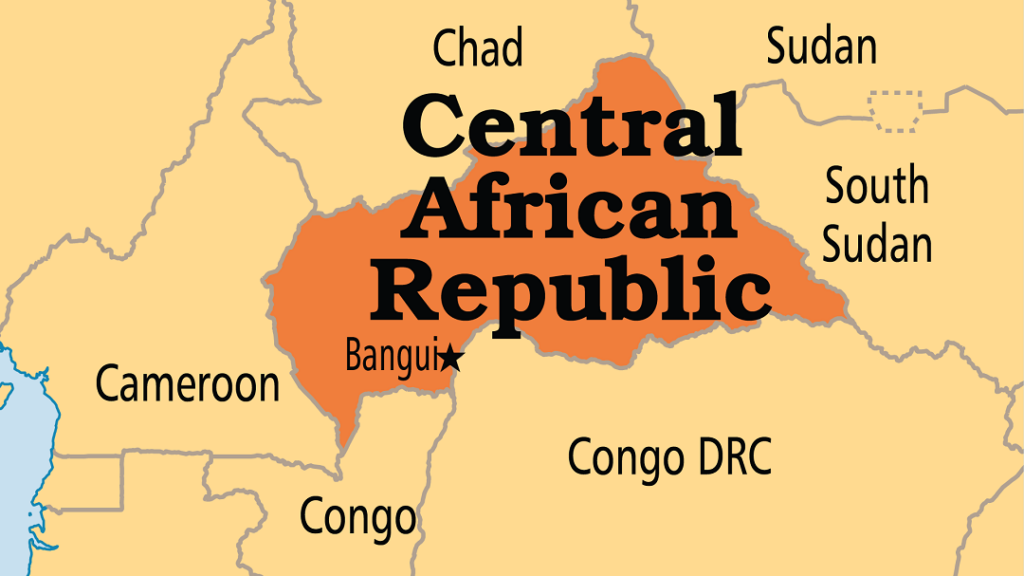- Central African Republic (CAR) may see growth projected at 3.6 percent in 2024 and 2025.
- The positive outlook is driven by anticipated higher international prices of timber, CAR’s main export.
- The World Bank says fuel shortages took a heavy toll on CAR leading to high levels of acute food insecurity.
The Central African Republic (CAR) is set to witness a return to economic growth this year after stalling in 2022, with the World Bank projecting 3.6 percent in 2024 and 2025. The latest edition of the World Bank’s CAR Economic Update indicates that heavy flooding and severe fuel shortages took a heavy toll on the country’s economy leading to high levels of acute food insecurity.
Economic activity in CAR may see a modest rebound over the medium term, with growth projected at 3.6 percent in 2024 and 2025. This is, however, provided that fuel supply in the domestic market improves and the security gains continue.
This outlook is primarily driven by anticipated higher international prices of timber, CAR’s main export. At the moment, China is driving a rebound of global demand for timber.
The World Bank notes that floods inflicted significant physical damage last year to homes, transport infrastructure and crops. The heavy rains, partly due to impact of climate change-induced weather patterns displaced over 6,000 people.
The floods, high energy prices, armed group activities and war in Ukraine led to zero economic growth in 2022. With nearly half of the population unable to meet their food needs, the report calls for policy actions on food security. It seeks measures to bolster public finances, attract private investment and improve human capital.
CAR reforms to eliminate extreme poverty
“CAR’s economic outlook remains fragile as domestic challenges are exacerbated by a challenging external environment of slowing global growth, high inflation and tighter financing conditions. CAR would do well to implement bold reforms to boost growth, improve living standards, and reduce extreme poverty,” World Bank’s Country Manager for the Central African Republic Guido Rurangwa said.
The research focuses on desperately needed changes to fuel subsidies. CAR turned to fuel subsidies when oil prices started to rise in 2020. The conflict between Russia and Ukraine is also raising the price of oil globally.
Read also: Lucrative investment sectors in the Central African Republic
In CAR, gasoline subsidies made up almost 0.5 per cent of GDP. In 2022, they contributed about 6.3 per cent of tax revenues and over 6 per cent of national income.
The World Bank observes that the richest parts of society are primarily and directly benefited by gasoline subsidies. Unfortunately, it observes, subsidies take scarce fiscal resources away from the industries, individuals, and businesses that require them the most.
Diesel and gasoline are substantially subsidized fuels, although wealthy urban residents predominately use these fuels. However, they might indirectly help the less wealthy sections of the population by lowering the cost of imports and transportation.
The poorest households predominantly rely on kerosene, bit they receive comparatively fewer subsidies. This disparity exacerbates income inequality and perpetuates social inequities.
A fuel subsidy reform strategy
“A well-designed fuel subsidy reform should include a robust mitigation package that offers targeted support to the most vulnerable segments of society,” co-author of the report Pierre Mandon explained.
The report further outlines four best practices for a fuel subsidy reform strategy. This will include temporarily excluding socioeconomically strategic fuels, such as kerosene, from the subsidy reform.
The country has also been urged to adopt a price smoothing mechanism to tackle excessive price volatility affecting households. CAR is also advised to ensure effective rollout of any mitigation measures seeking to alleviate cost of living.
Additionally, the country should engage in comprehensive stakeholder consultations and conduct targeted communication campaigns to address the concerns of various population groups.
